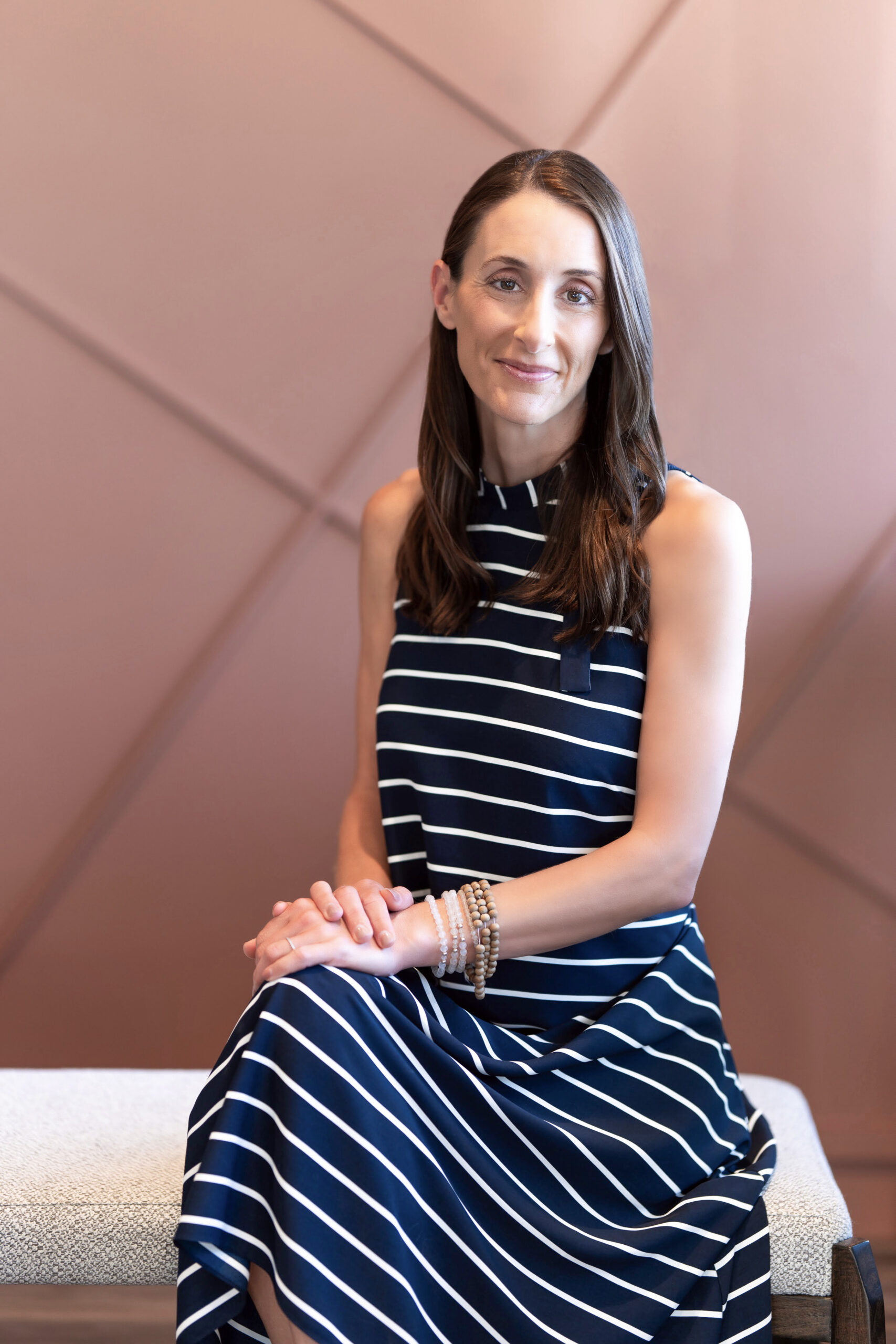What was your path to becoming a therapist? What inspired you to choose this profession?
Marriage and Family Therapy is a second career for me and it is with much gratitude to have finally arrived here. First, I completed undergraduate training at the University of San Diego, medical school at Loyola Stritch School of Medicine outside of Chicago, Illinois, and Anesthesiology residency at Loyola University Medical Center. After practicing as an Anesthesiologist, I completed the Integrative Medicine Fellowship through the University of Arizona with Dr. Andrew Weil, M.D then opened a pain management clinic where I worked with other providers to provide holistic, comprehensive care drawing upon my experiences as a certified 500-hour yoga instructor through YogaWorks and mindfulness-based stress reduction training with Jon Kabat-Zinn and other senior faculty of the Mindfulness-Based Stress Reduction program at the University of Massachusetts Medical School. It was with working with the chronic pain population where I was able to listen to a person’s life story and how their experiences impact their health that I was inspired to segue into the mental health field exclusively. I, then, completed a Master’s in Marriage and Family Therapy at Chapman University and am now a licensed Marriage and Family Therapist who works with individuals, couples, and families. Working with clients to find their way to emotional safety in relationship with themselves and others is an incredible honor.


What does a typical session with you look like?
My therapeutic style is collaborative, emotion and attachment-focused and infused with mindfulness and compassion-based interventions with the hope of creating a warm, safe space for clients to explore their deepest needs and concerns. Sometimes, the session may open with a grounding meditation or with whatever organically arrives with the client into the moment. I encourage my clients to express their authentic self in session, wherein if something isn’t resonating or landing well, I want them to speak up. This is all with the hope that the client finds their own voice and can express it as an act of self love.
What is your therapist superpower?
If my clients were to say that I have a super power, it might be that I can see the good in them and hopefully help them to see the good in themselves.
Short Term (Solution-focused, etc.)
Ideal for those who are coming in with a specific problem they’d like to address and gain clarity on. Typically, short term therapies are present focused and do not dive deep into your past.
Structured
Structured therapies are goal and progress oriented. Therapists may incorporate psychoeducation and a specific “curriculum.” In order to stay on track, therapists may provide worksheets and homework.
Insight-oriented (Psychodynamic, Existential, etc.)
Exploring the past and making connections to present issues can help clients gain insight. Getting to the root of the issue and finding deeper self-awareness can help with long-term change.
Non-directive (Humanistic, Person-centered, etc.)
Going with the flow and seeing where it leads.
Behavioral (CBT, DBT, etc.)
Focuses on changing potentially unhealthy or self-destructive behaviors by addressing problematic thought patterns and specific providing coping skills.
Trauma Focused (EMDR, TF-CBT, etc.)
Recognizing the connection between trauma experiences and your emotional and behavioral responses, trauma focused therapy seeks to help you heal from traumas.